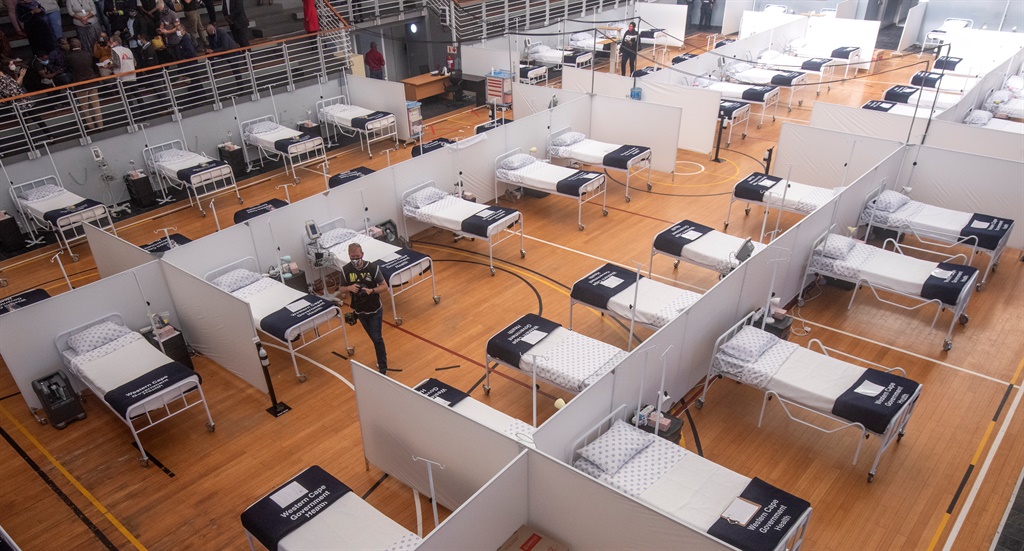


The Thusong Multipurpose Centre in Khayelitsha which serves as a Covid-19 site in Cape Town.
Brenton Geach, Gallo Images
- The government said its biggest Covid-19 headache is patients refusing to self-isolate or use state quarantine facilities.
- Joe Phaahla said on average, out of every 100 positive tested people in the Western Cape, only between 15 and 20% agreed to go into quarantine.
- Phaahla added the government needed to mobilise communities to take care of themselves and take all precautions.
Covid-19 patients refusing to self-isolate or use state quarantine facilities have become the government’s biggest headache.
This according to Deputy Health Minister Joe Phaahla who said most patients refusing to self-isolate were from the Western Cape.
He mentioned this during a debate on the government’s response to Covid-19 in the National Council of Provinces on Tuesday.
Phaahla said many people who were either contacts of Covid-19 patients or have tested positive were reluctant to go into self-isolation.
“A major challenge we have been experiencing, especially in the Western Cape, is a situation where many of the people who are either contacts or have already tested positive are very reluctant to go into isolation and quarantine … [also] if they are still waiting for their results.
“On average, out of every 100 positive tested patients in the Western Cape, only about 15 to 20% agreed to go into quarantine.”
He added many people were not taking up the space at the facilities and this impacted on the country’s infection and transmission rates.
“Our ability to win this battle is not going to depend largely on doctors and ICU beds. It’s going to depend on our ability to mobilise communities to take care of themselves.
“Those who have tested positive, should agree to either self-isolate in their homes and if they don’t have the facilities to agree to go into a government-provided isolation or quarantine facility.
“If we can do it, very few people will end up in hospital, very few people will end up in ICU,” Phaahla said.
READ ALSO | Dexamethasone: SA pharma giant Aspen to ‘ramp up’ production of ‘breakthrough’ drug
The DA’s chief whip in the Western Cape legislature, Mireille Wenger, said: “We have made Khayelitsha a hotspot. But that area has an 80% recovery rate. The challenge here for the national government is that the testing capacity needs to be strengthen.
“We are too far behind and in addition to that, we need more testing kits. If we don’t do this, we won’t have access to data. Without data we will not know whether a second wave of the virus will hit us.”
ANC MP Zolani Mkiva said Covid-19 had battered the economy as South Africans entered 2020 on the back of a technical recession.
“Our revenue collections have worsened with Covid-19. It got even worse as the lockdown proceeded. Covid-19 has disrupted the economic activities in our country. A package of extraordinary measures was announced.
“The government has done its best to care for people, putting lives before profits. Our social life has been severely affected and we also witnessed for the first time many events being cancelled all at once.”
Mkiva accused the Western Cape of working against the government in the fight against Covid-19.

